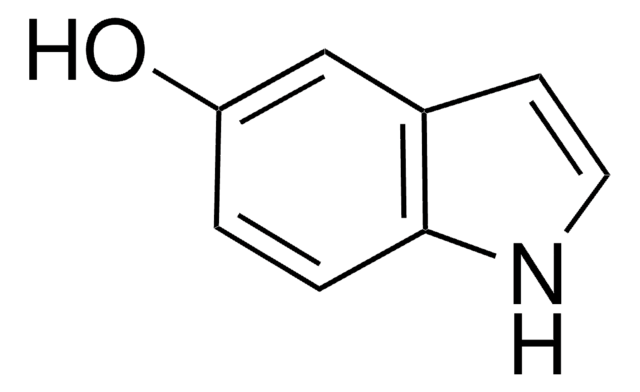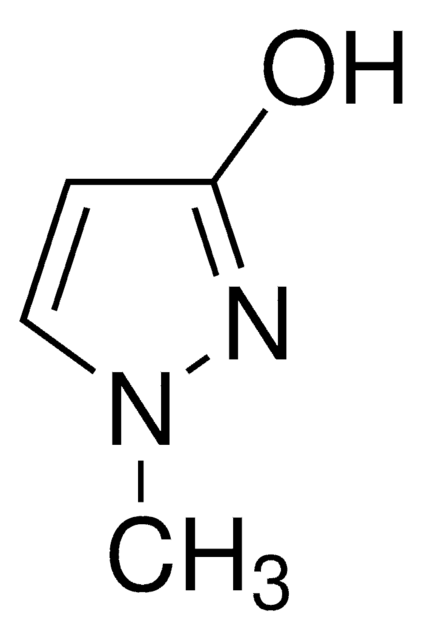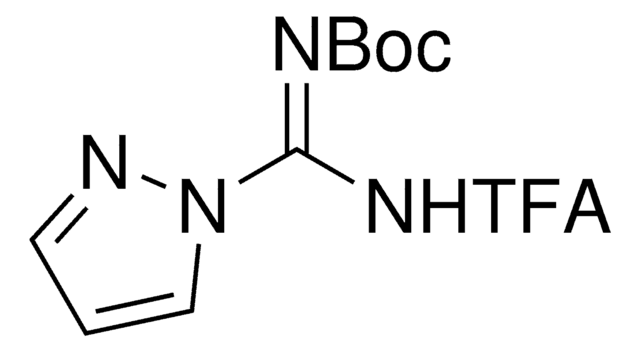197556
4-(3-Methyl-5-oxo-2-pyrazolin-1-yl)benzoic acid
≥98%
Synonym(s):
1-(4-Carboxyphenyl)-3-methyl-2-pyrazolin-5-one, 1-(4-Carboxyphenyl)-3-methyl-2-pyrazolinone, 1-(4-Carboxyphenyl)-3-methyl-5-pyrazolone, 1-(p-Carboxyphenyl)-3-methyl-5-pyrazolone, 4-(3-Methyl-5-oxo-4,5-dihydro-1H-pyrazol-1-yl)benzoic acid, 4-(3-Methyl-5-oxopyrazol-1-yl)benzoic acid, 4-(4,5-Dihydro-3-methyl-5-oxo-1H-pyrazol-1-yl)benzoic acid
About This Item
Recommended Products
Assay
≥98%
mp
285 °C (dec.) (lit.)
SMILES string
CC1=NN(C(=O)C1)c2ccc(cc2)C(O)=O
InChI
1S/C11H10N2O3/c1-7-6-10(14)13(12-7)9-4-2-8(3-5-9)11(15)16/h2-5H,6H2,1H3,(H,15,16)
InChI key
CUGBBQWDGCXWNB-UHFFFAOYSA-N
General description
Certificates of Analysis (COA)
Search for Certificates of Analysis (COA) by entering the products Lot/Batch Number. Lot and Batch Numbers can be found on a product’s label following the words ‘Lot’ or ‘Batch’.
Already Own This Product?
Find documentation for the products that you have recently purchased in the Document Library.
Our team of scientists has experience in all areas of research including Life Science, Material Science, Chemical Synthesis, Chromatography, Analytical and many others.
Contact Technical Service









